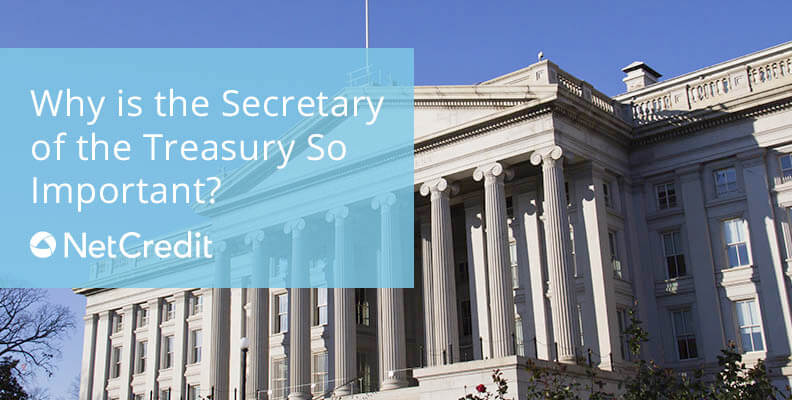 Does the name Jacob Lew sound familiar? You may have heard his name, but many do not know that he has been Secretary of the Treasury since 2013. More disconcerting, too many Americans do not understand why the Treasury Secretary is such an important position.
Does the name Jacob Lew sound familiar? You may have heard his name, but many do not know that he has been Secretary of the Treasury since 2013. More disconcerting, too many Americans do not understand why the Treasury Secretary is such an important position.
The Treasury Secretary is a cabinet position, a member of the executive branch of government appointed by the President and approved by the Senate. Other cabinet positions the President appoints include the Secretary of State, Secretary of Defense, Attorney General and Secretary of Education. Today, there are 15 official Secretarial positions — and Treasury Secretary is among the most important.
The actions of the Treasury Secretary have profound influence on the U.S. economy, but the Treasury’s importance comes down to its two primary responsibilities:
- Collect revenue for the federal government
- Pay the federal government’s operating bills, debts and obligations
These two basic responsibilities affect every single person living in the U.S., from individuals and businesses paying taxes to civil servants, military personnel, retirees and healthcare professionals receiving wages, benefits or reimbursements.
In addition to these fiscal duties, the Treasury is also responsible for managing the national banking system. Through its Office of the Comptroller of the Currency (OCC), the Treasury Department regulates all national banks and federal savings associations, as well as the U.S. branches and agencies of foreign banks.
The Treasury of the United States was established in 1789 and is responsible for producing all currency, collecting taxes and managing most anything that has to do with the United States’ federal budget. The Treasury’s very first secretary was Alexander Hamilton, whose work establishing the foundation for America’s financial growth and strong credit earned his portrait a place on the $10 bill.
The Treasury department is a big operation, employing nearly 120,000 government employees. The Treasury Secretary oversees other notable agencies such as the Internal Revenue Service (IRS), the Secret Service and the U.S. Mint.
Because the Treasury handles the nation’s revenues, financial assets and debts, the Treasury Secretary is perhaps the single most important economic adviser to the president. In the role of presidential advisor, the Secretary helps to craft and execute federal policy with regard to budgetary and financial issues affecting the United States economy. Essentially, the Treasury Secretary manages the country’s finances.
One of the most important functions of the office is raising and collecting revenue. In addition to the individual income and business taxes collected by the IRS, the Treasury also auctions off U.S. Treasury bills, notes and bonds to raise funds. For example, the 30-year Treasury Bond, the 10-year Treasury note and 1-Year Treasury Bill are popular investment vehicles that are issued by the Treasury Department.
These securities are essentially “IOUs” issued by the government. Whenever the federal government needs to borrow money to pay bills, it will sell these bonds, bills and notes to help to finance the government’s operation and pay obligations. It’s up to the Treasury Secretary to determine how much money to raise during these debt auctions, with authorization from Congress.
The office of the Secretary of the Treasury is arguably the top financial position in the United States and, by virtue of America’s economic strength, one of the top financial figures in the world. The Secretary’s control of the U.S. banking system and federal government operations directly influences the national economy as a whole.
The fact that the Treasury Secretary is often unrecognized is a positive thing. It’s not the Treasury Secretary’s job to be well-known and recognized by the public. In fact, the public’s awareness of the Treasury Secretary’s duties are often at its peak only when there is a fiscal problem.
As mentioned above, the primary task of the Treasury Secretary is to make sure that the United States’ banking and financial systems are operating as smoothly as possible. That stability helps to provide the stable foundation that America’s economy, businesses, entrepreneurs and individuals need to thrive.






